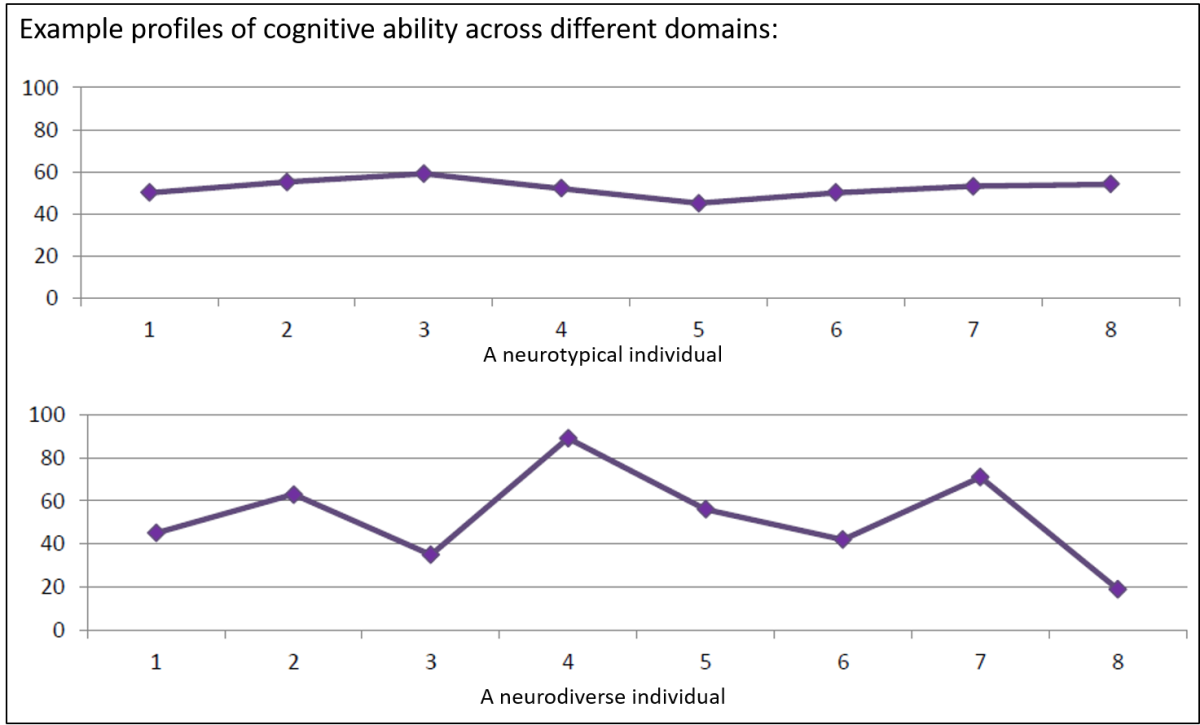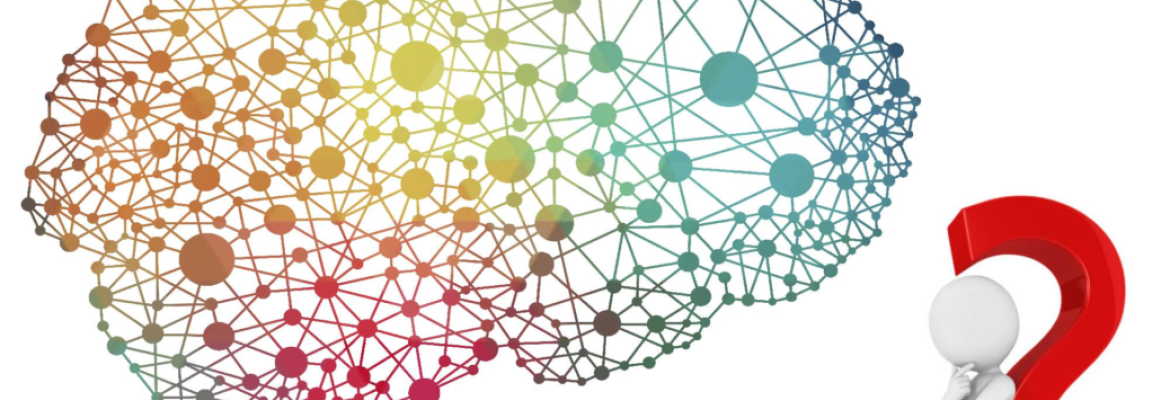Defining Neurodiversity
The concept of neurodiversity is a framework for understanding how we think and function which considers the diverse ways in which individuals process and respond to information. These differences may include sensory processing, motor abilities, social comfort, cognition and focus. The neurodiversity movement has a rich history and is not without its complexities and controversies. For the purposes of this website, the terms "neurodiversity" and "neurodivergence" are used to encompass diagnoses of autism, ADHD, developmental speech disorders, dyslexia, dyspraxia, dyscalculia and dysgraphia. Some sources of information and support for neurodivergent individuals also consider other diagnoses to fall under the neurodiversity banner, and the resources in this website may also be relevant to individuals with an alternative diagnosis, as well as those who are without a formal diagnosis and simply looking for information or support.
Neurodivergent individuals can describe themselves in a variety of ways. Some may identify with a specific medical diagnosis (for example.the author of this website would self-describe as "autistic" by preference). Others may describe themselves as neurodivergent, neurodiverse, or using colloquial terms such as "neurospicy" or "neurospiky". Where mulitple diagnoses coexist, some use portmanteaus such as AuDHD. This website uses the term neurodiverse/neurodivergent to refer to general information; or a specific diagnosis where applicable. Other terms are mentioned here as it is important to be aware of how an individual may choose to self-describe.

Diagnosis usually includes assessment across a variety of different domains including verbal comprehension, processing speed and social cues. This produces a profile of cognitive ability (see examples on the right). Many forms of neurodivergence are considered to be spectrum conditions, and this is true to a certain extent. However this line of thinking does not always take into account the differing cognitive profiles of individuals even within a single diagnostic group such as dyslexia. All people have strengths and weaknesses in different areas, however it is recognised that neurodivergent individuals are more likely to have a more "spiky" profile in terms of areas where they excel and areas where they may need more support. For example, individuals with ADHD will generally display relative strengths in verbal comprehension and perceptual reasoning, whereas they may require more support in terms of working memory and processing speed.
Autism
Autism is a spectrum condition which affects how people perceive and interact with the world. It is characterised by challenges in social communication and social interaction, but those with autism may also demonstrate a love of routine, repetitive behaviours, altered sensitivity to physical stimuli, increased focus on interests or hobbies and an increased incidence of anxiety. It is increasingly recognised that many individuals with autism will "mask" their autistic traits, either consciously or subconsciously, in order to interact more easily in society. This can lead to traits only being noticeable in times of stress. Autistic individuals may have particularly strong attention to detail, long term memory skills and are often innovative thinkers. For more information, the National Autistic Society and Autistic Doctors International are useful resources.
ADHD
Attention Deficit Hyperactivity Disorder is a group of behavioural symptoms which includes distractibility, impulsiveness, restlessness and hyperfocus. Individuals with ADHD fall somewhere on a spectrum from those with more inattentive behavious (easy distractibility but no hyperactivity or impulsivity) to those with more hyperactive and impulsive behaviours, but who do not struggle with inattentiveness. The majority of individuals will have some combination of all three features. Inattentiveness may manifest as having a short attention span, struggling to follow instructions or prioritise, and appearing forgetful. Hyperactivity and impulsiveness may manifest as excessive talking or physical movement and difficulty concentrating on tasks. Individuals with ADHD may have particular strengths such as bringing energy and passion to projects, and being particularly creative. Hyperfocus can also be a strength in these individuals. ADHD UK has more information and resources including some excellent resources on ADHD and the workplace.
Dyslexia
Dyslexia means "difficulty with words", but reserach has shown that rather than being limited to a reading difficulty, dyslexia actually often manifests as a strength in visual thinking and a weakness in processing sounds. This challenge in phonological processing can affect reading fluency, spelling and learning languages. It affects up to 10% of the population, 4% severely so. Dyslexia can be more challenging to detect in childhood in those with high academic attainment, as the gap between other skills and phonological processing may be less noticeable. These individuals may then present as adults with difficulties with postgraduate exams. For more information on dyslexia, the British Dyslexia Association has useful resources.
Dyspraxia (DCD)
Dyspraxia, also called Developmental Coordination Disorder, is a delay or disorder in the planning or execution of complex movements. It can affect coordination, organisation, time management and perception. In adults, dyspraxia may manifest as difficulty learning new motor skills or applying those skills in different or busy environments. Sensory overload is not uncommon as individuals can struggle to process the sensory information they are receiving, and this can cause fatigue. Individuals with dyspraxia are often strong in areas such as verbal comprehension. The website Movement Matters has more information and resources on dyspraxia.
Dyscalculia
Dyscalculia is a specific and persistent difficulty in understanding numbers. It can affect sense of direction, and some individuals also find their physical coordination and ability to tell the time or plan schedules are affected. It is thought to affect approximately 6% of the population. Generally speaking, for a diagnosis of dyscalculia an individual will struggle with numbers but not other subjects like English or languages. They may have strengths in verbal skills and thinking holistically. The British Dyslexia Association also supports individuals with Dyscalculia and provides helpful information and signposting.
Dysgraphia
Dysgraphia is an impairent of written expression: ie the ability to write clearly and coherently. It mainly refers to handwriting but can be co-associated with problems with finger sequencing (the movement of finger muscles required for writing) which can then translate into difficulty with typing. Dysgraphia is often associated with other neurodiversities: it is now considered a separate condition but was originally described as only being a disorder which occurred in dyslexic individuals. However it is now understood that individuals with dysgraphia are often particularly strong in their verbal comprehension skills. The International Dyslexia Association has more information about dysgraphia on its website.
